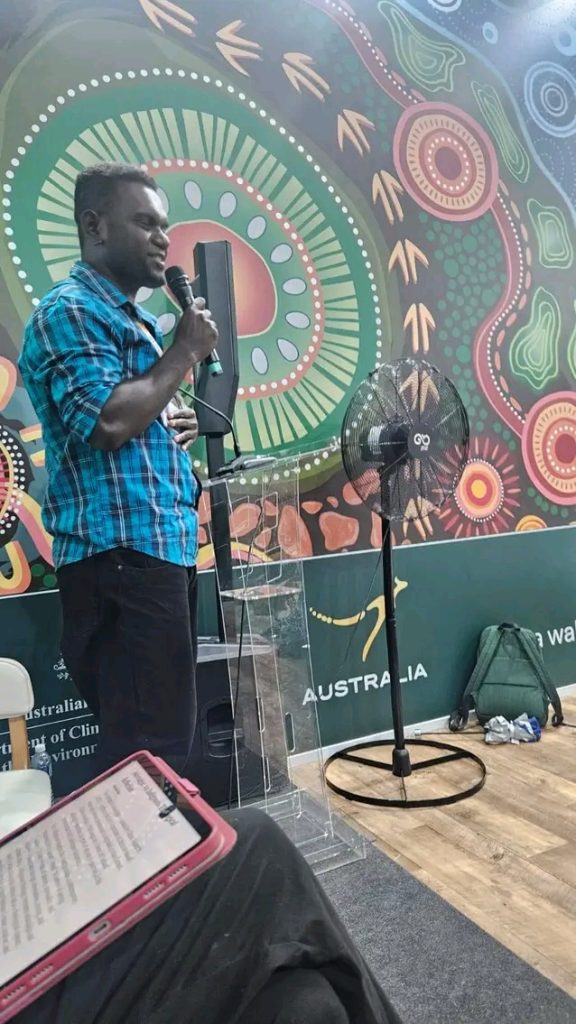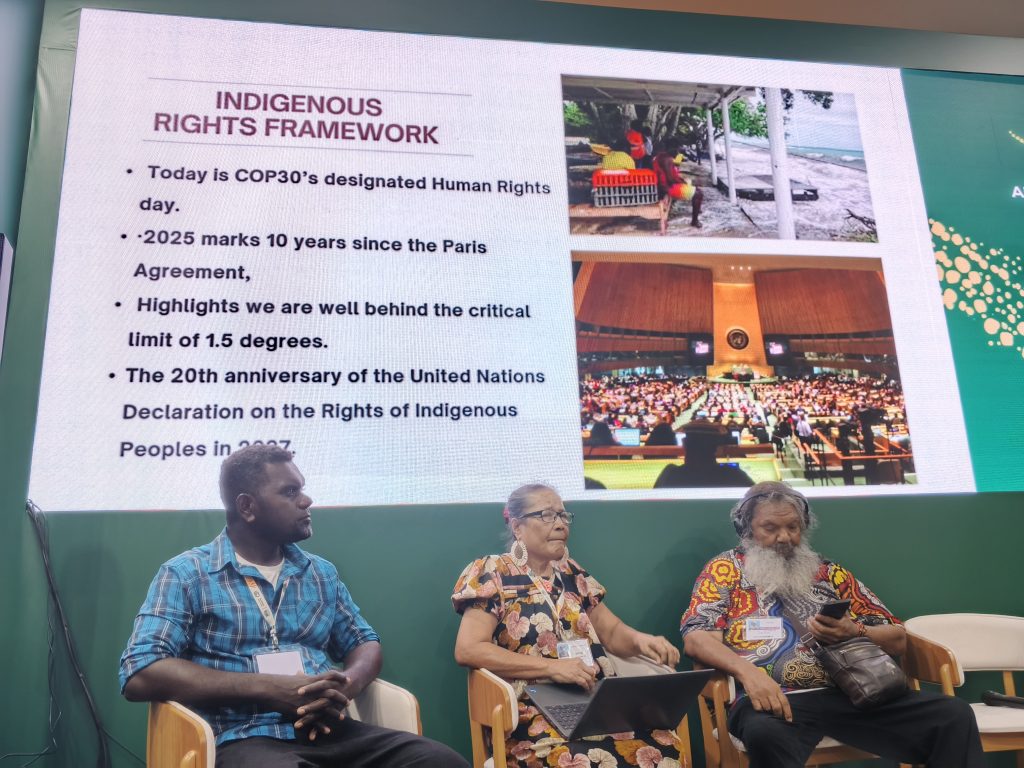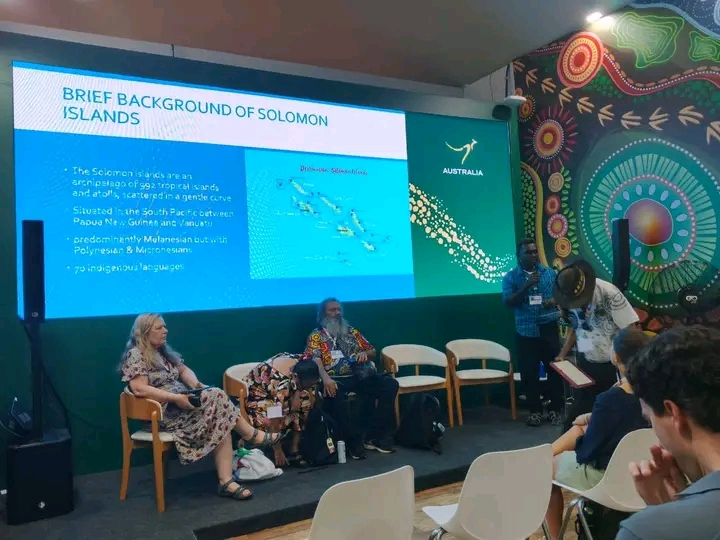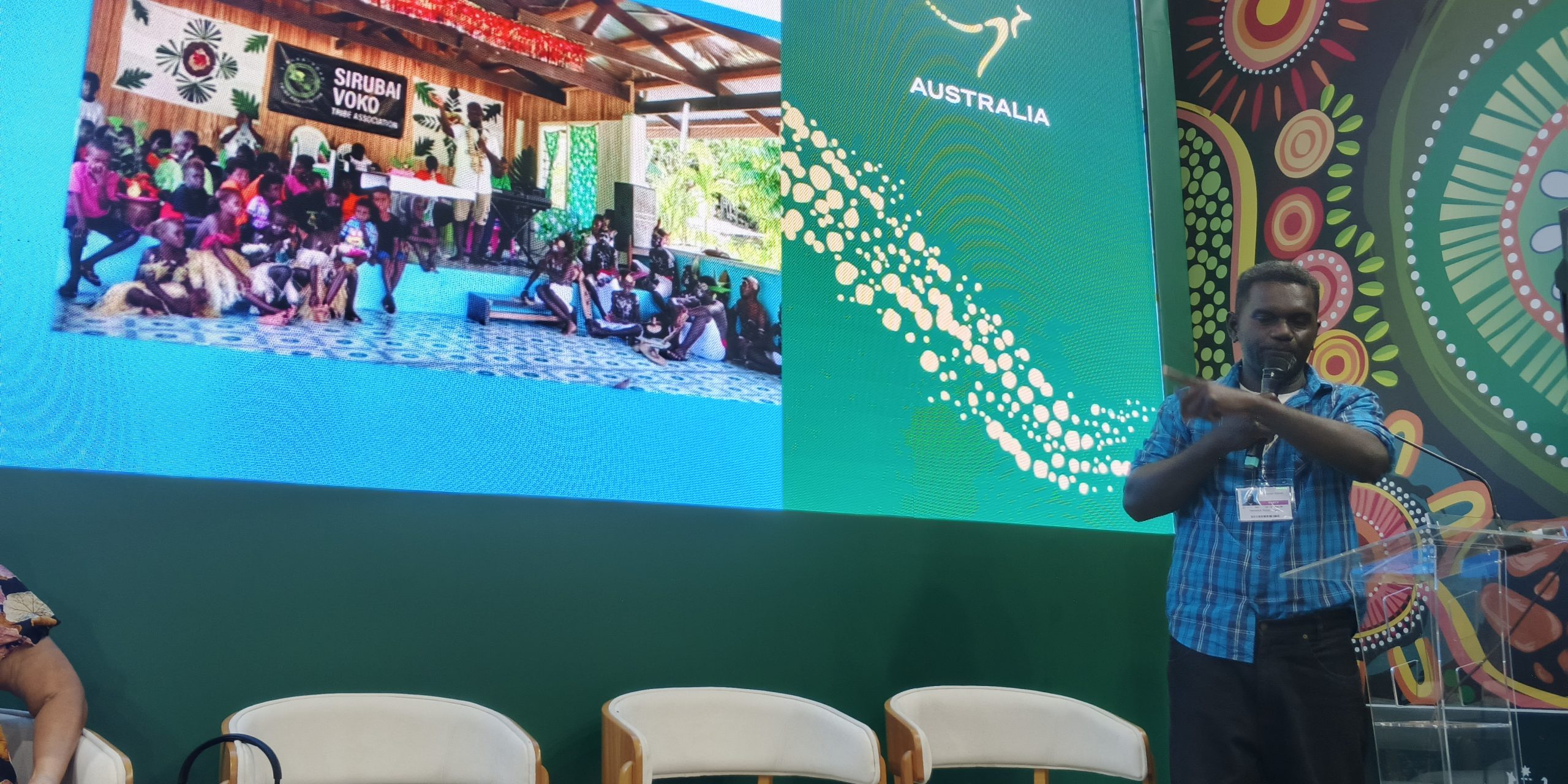The Sirubai Voko Tribe Association (SVTA) of Vella La Vella, located in the Western Province of Solomon Islands, has proudly represented Solomon Islands at the 30th Conference of the Parties (COP30) held in Belém, Brazil.
This event serves as a platform to showcase a decade of community-led initiatives and indigenous knowledge practices.
The founder of SVTA, who was selected under the UNFCCC’s Pacific knowledge holder category, expressed that attending COP30 provided an opportunity to present the Association’s community engagement work, traditional practices, success stories, and the challenges encountered at the grassroots level.

In an interview with Solomon Star over the weekend, SVTA founder Hendrick Kaniki shared that for the past decade, the Association has been actively engaging in activities and best practices aimed at strengthening the community’s resilience. COP30 allowed them to bring these stories to the global stage.
It would be great to have more community voices at the next COP so that more of our stories can be heard globally,” Kaniki added, noting that funding remains the biggest barrier for many rural organisations.
SVTA was the only community-based representative from Solomon Islands at this year’s climate summit.
The delegate expressed hope that future COP conferences will see broader participation from local groups across the country.

Meanwhile, UN Climate Change Executive Secretary Simon Stiell has called for Indigenous knowledge and leadership to be placed at the centre of global climate action, delivering a powerful message during the COP30 Presidency Dialogue with Indigenous Peoples in Belém, Brazil, on 13 November.
Speaking in the Amazon — which he described as “the living heart” of the planet, Stiell paid tribute to the Indigenous Peoples whose stewardship, he said, has sustained life and demonstrated true resilience for centuries.
“Indigenous Peoples remind us that the health of our lands, waters, and skies is inseparable from the health of our communities, our economies, and our shared future,” he said.
Stiell stressed that Indigenous communities have long embodied climate action through deep relationships with nature grounded in responsibility, reciprocity, and respect values he said must guide the work of COP30.

He acknowledged that while Indigenous rights and knowledge systems are recognised across the UNFCCC process, those commitments have too often failed to translate into real practice.
“Our task is to move from citation to application,” Stiell said.
“Indigenous worldviews must help shape how climate action is designed, implemented, and measured.” he adds.
The next COP is expected to be hosted either in Türkiye or Australia, offering another opportunity for Solomon Islands’ community groups to showcase their knowledge and resilience on the international stage.
“This story was produced as part of the 2025 Virtual Climate Change Media Partnership, a journalism fellowship organized by Internews’ Earth Journalism Network and the Stanley Center for Peace and Security’’.
By ULUTAH GINA
Solomon Star, Gizo









